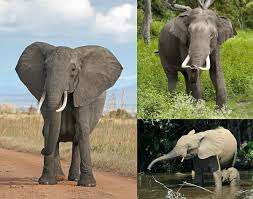
Elephants from Botswana, Zimbabwe, Namibia and South Africa can only be Export of elephants to other regions of Africa that are their habitat. This was thanks to a new CITES decree and will put an end to the sale of wild elephants to zoos around the world.
In emergency cases and with the permission of the CITES committee, the export of elephants is still possible.
Studies have shown that elephants are very intelligent social creatures that create long-term connections with other animals. They mourn their dead and are able to sympathize.
“The ban on selling baby elephants to zoos is a huge victory,” says Frank Pope, CEO of Save the Elephants, a non-profit organization in Nairobi.
Law enforcement agencies conducted the largest operations to combat wildlife crimes
International law enforcement agencies, including Interpol, Europol and the World Customs Organization, have conducted major operations, Thunderball (Ball Lightning) and Blizzard (Storm), to combat the illegal trade in wild flora and fauna. 109 countries participated in the operation, the illegal movement of 2,000 representatives of protected species was stopped.
During the operation, foci of crime were identified and wildlife crimes were prevented. Roux Raat, World Customs Organization program manager for the environment, said the ultimate goal of the operation is “the elimination of criminal groups.”
During the Blizzard operation, small smugglers were identified, 12 people were arrested and more than 4,000 reptiles were confiscated. Sergio Tirro, head of the Europol project on environmental crimes, hopes that law enforcement agencies will be able to obtain information from suspects and initiate cases against large traffickers.
“Most of all, we pay attention to organized criminal groups that engage in illegal trade,” says Tirro.




